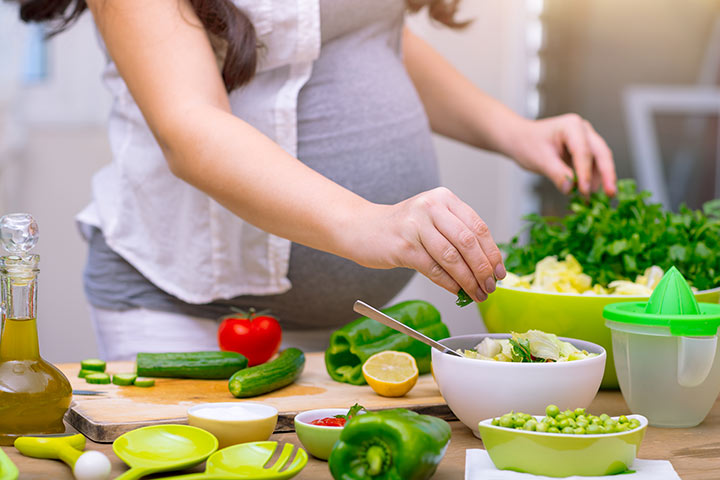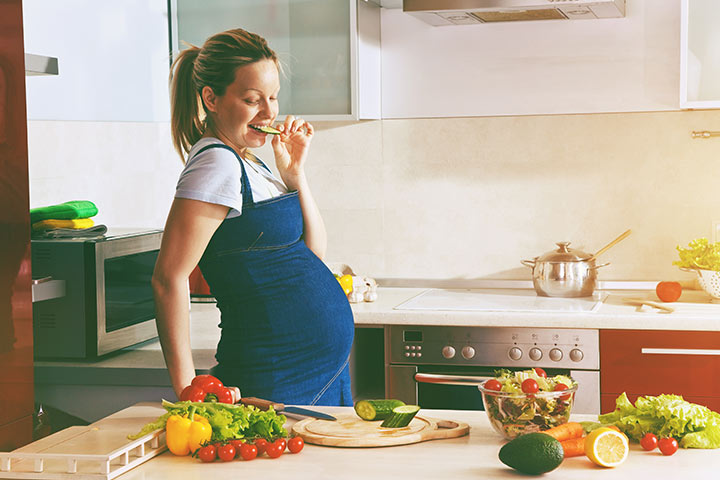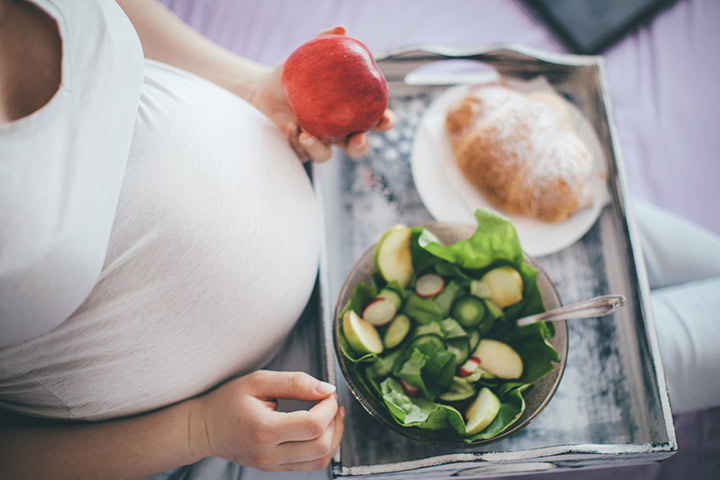
Image: iStock
Pregnancy is sure a magical time and you cannot wait to have your little one in your arms. However, one of the most important things you need to focus on right now is your diet. A healthy diet during pregnancy is different from that before your pregnancy. Your food intake should ensure the healthy growth of your baby and also keep up your strength.
We hope that this diet guide will help you plan your diet accordingly and get all the essential nutrients that you need to get.
First Trimester
Nausea and vomiting are almost at their strongest during the first trimester and you may not feel like eating anything at all (1). But you must ensure that you and your baby are getting enough nutrition no matter what. The biggest highlight during the first trimester is the rapid changes that your body goes through and the rate at which your baby grows (2). This is the time when your baby’s brain, spinal cord, and different organs develop. The little one’s heart starts beating and the fingers and toes also begin to take shape during this phase.
There is no magic trick that will ensure a healthy diet during pregnancy. But there are certain things that you must include in your diet since they are proven to be beneficial. For example, folate and folic acid help in preventing birth defects and you can start consuming them as early as during the first trimester (3) (4). Folic acid supplementation helps reduce the risk of premature birth. Every day, you need around 400-800 micrograms of folate/ folic acid, before conception and throughout pregnancy.
Fortified cereals, citrus fruits, leafy green vegetables, and dried beans and peas are good natural sources of folate (5). However, you can seek the guidance of your doctor and ask him if you may need a folic acid supplement or not. Your prenatal vitamins are your best friend during this time and you shouldn’t forget to start consuming them as early as possible. Also, it’s important to take enough amount of calcium, iron, zinc, and iodine (6).
Second Trimester
By the time you enter the second trimester, you should most likely increase your nutrient intake by around 335 calories (7). It is during this trimester that your baby starts to move and hear (8)! Make sure you eat nutritious food as suggested by your doctor along with your prenatal supplements.
Food items that are served at room temperatures like open salad, prawns and open meals from stalls can be harmful to your health (9). Your immune system is not as strong as before and during pregnancy, you are prone to listeria, a bacteria that is present in such food items. Listeria can cause complications related to pregnancy and birthing. They can also be present in soft serve ice cream, ice cream from a truck, deli/soft cheeses, or cold meat.
Third Trimester
During the third trimester, you should start increasing your nutrient intake by 454 calories per day (10). Remember that this is the time when pregnant women experience constipation the most and it can lead to hemorrhoids as well. This is why you need to focus on dietary fiber intake that you will get from wholegrain and wholemeal bread and cereals. You may want to consider stopping your omega 3 supplement consumption as it is believed to extend the duration of pregnancy. But make sure you talk to your doctor before doing so.
Some Important Things To Include In Pregnancy Diet
Calcium
You need to make sure that your pregnancy diet includes enough calcium because it helps in the development of strong bones and teeth for your baby. Around 1,000 milligrams a day is the ideal amount that you can consume. Dairy products and vegetables like broccoli and kale are good sources as well (11).
Vitamin D
It promotes the strength of the bones and teeth of the baby. Consume around 600 international units (IU) per day. Salmon, fortified milk, and orange juice are a few sources of Vitamin D (12).
Iron
Prevents anemia and ensures proper oxygen supply to your baby. Consume around 27 milligrams per day. Lean red meat, poultry, fish, iron-fortified cereals, vegetables, and beans are some of the options that you can try (13).
The best thing to do before you decide a diet plan during your pregnancy is to talk to a doctor. They can give you a much detailed and accurate plan after considering your body’s specific needs.

















